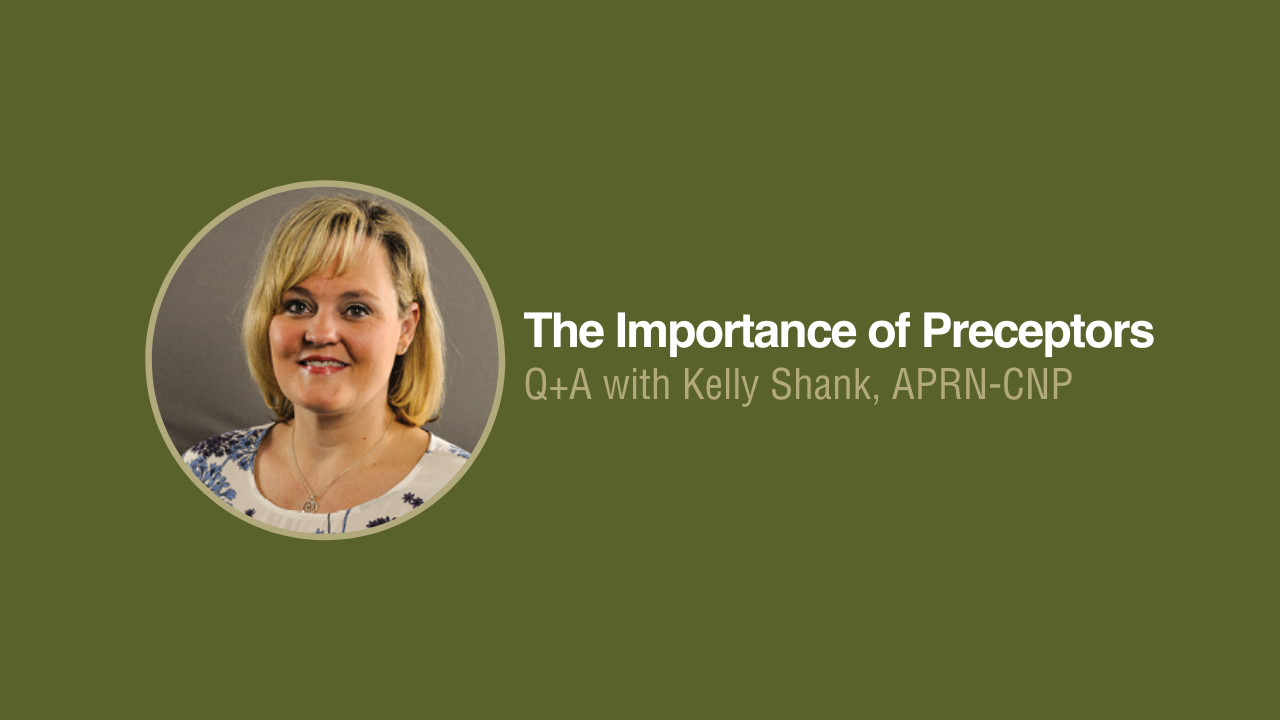
Preceptors are vital for the clinical education of APRN students, allowing them to gain experience and confidence as they prepare to become a practicing APRN. We recently sat down with OAAPN President, Kelly Shank, APRN-CNP, to discuss her passion for precepting, why it is important, and what she gains from the experience.
What is a preceptor? What are the responsibilities of a preceptor?
A preceptor essentially is someone who helps to train the clinical aspect of APRN students. It is more than just how to see patients, but about the overall role of an APRN. As a preceptor, I encourage students to take advantage of the resources available to APRNs through OAAPN, take them to local chapter meetings, and teach them how to talk to families, especially how to have those difficult conversations that are oftentimes necessary. Becoming an APRN is not just just about caring for patients’ physical symptoms and prescribing medicine, there is a lot more to it.
Talk about your experiences being a preceptor…
Honestly, I don’t remember how I got into it. My first student was probably about 15 years ago, from the University of Toledo. She is in practice and I am still in contact with her. It was a great experience and that is probably why I am so active in precepting to this day.
Being a preceptor can be a challenge because things have changed since I was in school 25+ years ago. Precepting forces me to go back and brush up on things. Honestly, the biggest benefit of precepting is that it helps me stay current on what students are learning and how they are being taught in school. While I may do things a little differently now based on my years of experience, it is always good to know what is being taught, how, and why.
Why is precepting important?
All APRNs need preceptors, so they serve an essential role in our profession. When I was an APRN student, I had some great ones and I had some that were just okay. I think it is important that students have someone who is excited about teaching them and excited about their shared profession. The student also has to feel comfortable asking the preceptor questions. We all get busy at times, but across the precepting experience it is important that students have the opportunity to gain invaluable insights from their preceptors. The students are not going to know everything about every disease and every situation they will encounter with a patient when they graduate. That’s why I think it is important that the students get comfortable looking at, talking to, and listening to the patients – learning it in a book is completely different than talking to patients.
Because I practice in geriatrics, I have a lot of end-of-life conversations with patients and their families. My students have to be comfortable with that. Because I work in assisted living facilities or even patients’ homes, my students can sit and talk with them as long as they want. It is beneficial that they are able to see the continuity of care from one day to the next, as well as the progression of the patient over time. This is quite different from someone who works in urgent care and never sees the patient again.
What lessons have you learned through precepting?
I am always interested in seeing the differences between programs. I often have more than one student, each from different programs, so they are able to ask questions of each other and not just me, which is very valuable.
One of my favorite things about precepting is to see how students think about a patient in terms of how they see the problem, what they think is the patient’s biggest problem, and how they are going to address that. I get to see their confidence grow over time. No one is ever going to graduate and know everything – but knowing when to ask questions is what is important. I really try to push the students because in a couple of months I won’t be sitting next to them and I want them to feel comfortable.
What advice would you give to students looking for a preceptor?
Reach out to any physicians or APRNs they know even if they can’t precept themselves. Networking is so important! Our chapter leaders do a great job working to connect students and preceptors and we try to do the same thing at our annual Statewide Conference. There are some social media sites and Facebook pages that can also help. I always encourage students to send a professional resume, along with a letter explaining their experience and what they are looking for.
Interested in investing yourself and your profession? Join OAAPN today! We offer student pricing for memberships and your membership also gives you discounted pricing to our annual Statewide Conference.